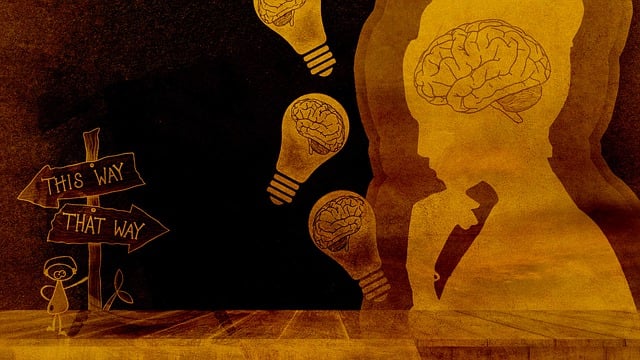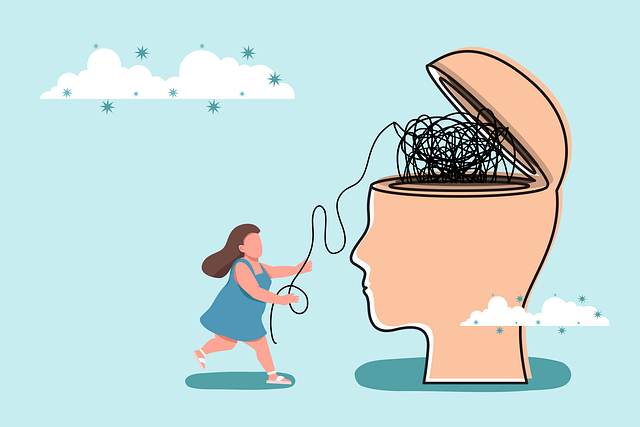Lafayette Gender-Affirming Care Therapy (LGACT) provides specialized therapeutic support for individuals exploring their gender identity, using evidence-based practices and empathy-focused strategies. Their mental wellness groups create safe spaces for emotional well-being, resilience building, and community fostering through interactive discussions and tailored coping skills development. Effective group facilitation techniques at LGACT promote open communication, social skills training, and self-esteem improvement, ultimately empowering participants with personalized tools for personal growth and recovery.
In today’s diverse social landscape, mental wellness groups play a pivotal role in fostering community and peer support. This article explores effective facilitation techniques for these groups, with a specific focus on Lafayette Gender-Affirming Care Therapy—a therapeutic approach that prioritizes inclusivity and respect for all identities. We’ll delve into key principles, benefits, and practical strategies for creating safe spaces, encouraging active participation, and fostering open dialogue. Additionally, we’ll discuss how to customize these techniques for diverse groups and measure the lasting impact of such initiatives.
- Understanding Lafayette Gender-Affirming Care Therapy
- – Definition and key principles
- – Benefits for mental wellness groups
- Effective Group Facilitation Strategies
Understanding Lafayette Gender-Affirming Care Therapy

Lafayette Gender-Affirming Care Therapy (LGACT) is a specialized approach designed to support individuals navigating their gender identity and expression, fostering an environment of acceptance and empowerment. This therapeutic model emphasizes understanding and validating each client’s unique experiences, regardless of their gender. Facilitators employ Empathy Building Strategies to create safe spaces where clients feel heard and respected. By encouraging open dialogue, professionals cultivate a sense of belonging, helping individuals challenge societal norms and internalized biases that contribute to anxiety relief.
LGACT goes beyond traditional therapy by integrating evidence-based practices tailored to the specific needs of transgender and non-binary individuals. Risk Management Planning for Mental Health Professionals is an integral part of this process, ensuring facilitators are equipped to handle diverse scenarios while prioritizing client safety and well-being. Through LGACT, participants embark on a journey of self-discovery, building resilience and fostering connections that resonate long after sessions conclude.
– Definition and key principles

Mental wellness group facilitation involves guiding a diverse range of individuals through collaborative therapeutic processes aimed at enhancing emotional well-being and fostering social support. This approach recognizes the power of shared experiences and peer connections in facilitating healing and growth. Key principles include creating a safe, inclusive space where all voices are respected, encouraging active participation through interactive activities, and promoting emotional regulation strategies tailored to each participant’s unique needs.
At Lafayette Gender-Affirming Care Therapy, our facilitators employ evidence-based techniques to support individuals navigating complex emotional healing processes. By integrating practices such as mindfulness, stress management, and self-care routine development for better mental health, we empower participants to cultivate resilience and thrive. We believe in the transformative potential of community, fostering an environment where emotional expression is safe and personal growth is encouraged.
– Benefits for mental wellness groups

Mental wellness groups offer a supportive environment where individuals with shared experiences can connect and heal. Through facilitated discussions, members gain valuable insights into their emotions, foster a sense of belonging, and learn coping skills that promote positive thinking. This collective approach to mental health care has proven beneficial for participants seeking personal growth and recovery, especially in the context of Lafayette Gender-Affirming Care Therapy. By engaging in open dialogue, individuals can break free from isolating experiences and build resilience.
Group facilitation techniques encourage active participation, fostering a sense of community among members. This supportive setting not only enhances mental health awareness but also empowers participants to develop effective coping strategies tailored to their unique needs. Members often leave these groups feeling empowered, equipped with new perspectives, and better prepared to navigate life’s challenges.
Effective Group Facilitation Strategies

Effective group facilitation techniques are essential for creating a supportive and inclusive environment in mental wellness sessions, especially when tailored to diverse needs like those offered by Lafayette Gender-Affirming Care Therapy. One powerful strategy is fostering open communication through active listening. Facilitators should encourage participants to share their experiences and feelings, ensuring every voice is heard without judgment. This promotes a sense of belonging and allows individuals to learn from one another, enhancing social skills training and self-esteem improvement.
Additionally, incorporating interactive activities and exercises can significantly benefit group dynamics. These could include role-playing scenarios that help individuals practice assertiveness or work on their emotional expression. Facilitators can also guide discussions on building healthy habits, such as integrating a self-care routine development for better mental health, to cultivate resilience and overall well-being.
Lafayette Gender-Affirming Care Therapy offers a powerful framework for enhancing mental wellness group facilitation. By embracing its key principles, facilitators can create safe and inclusive spaces that foster profound benefits for all participants. Effective strategies, such as active listening, structured discussions, and empathy, empower individuals to explore their identities with support and understanding. Through these techniques, mental wellness groups can become vibrant hubs of connection, healing, and growth, ultimately revolutionizing the way we approach collective care.














